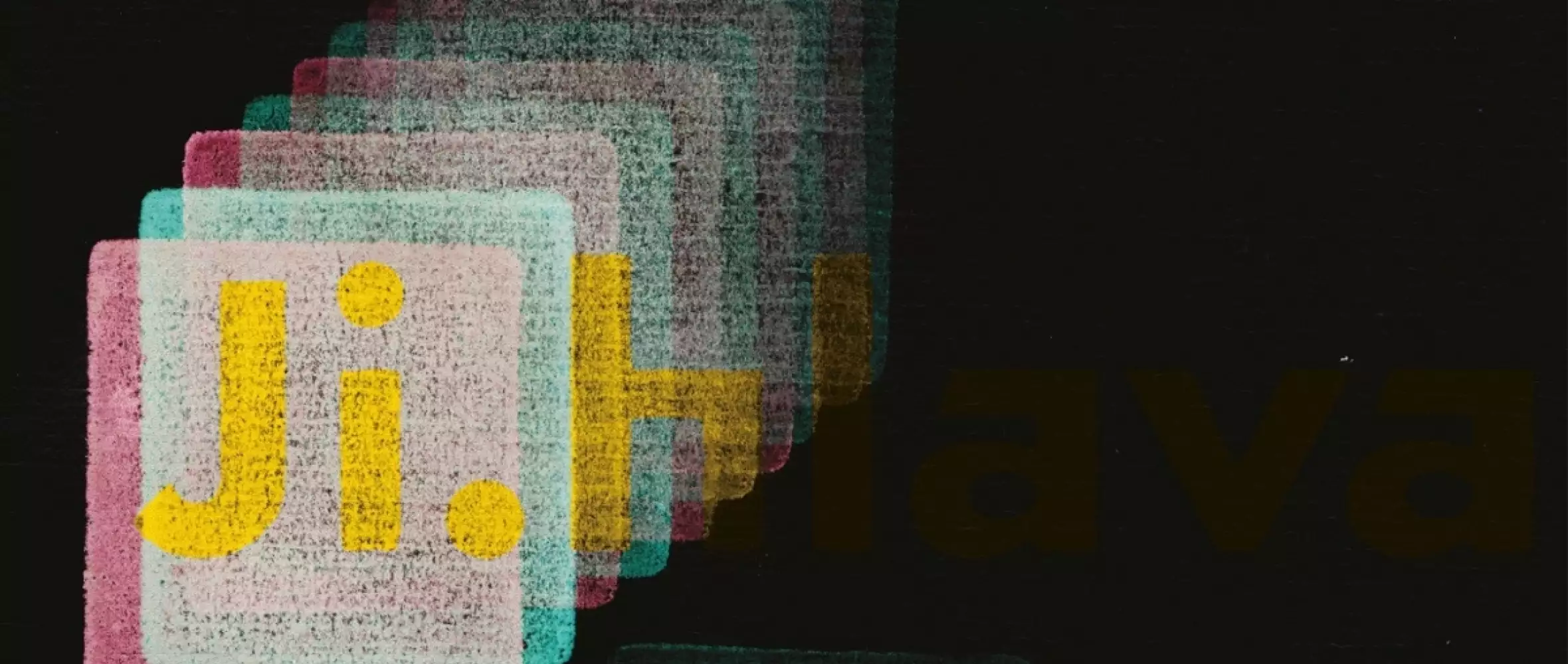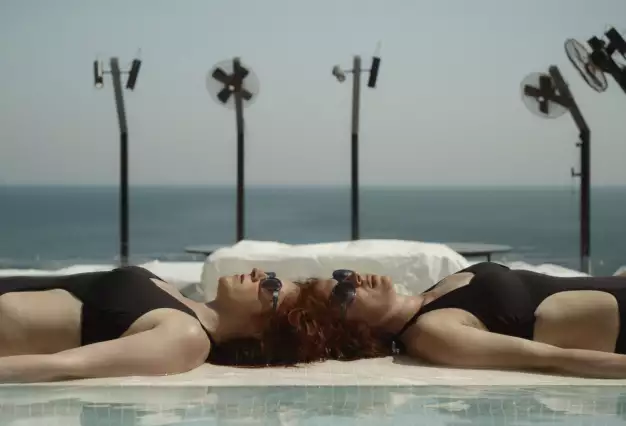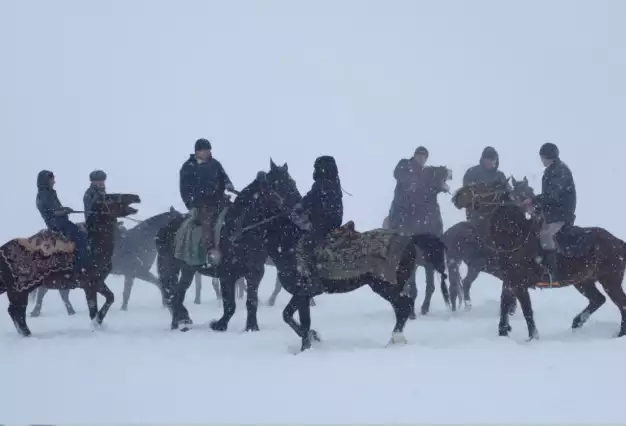
20 October 2017
Czech Joy in the Spotlight at IDFF Jihlava
Czech Joy in the Spotlight at IDFF Jihlava

For the second time Czech Film Center and Jihlava International Documentary Film Festival (October 24-29, 2017) organize a presentation and short previews of brand new Czech documentaries for the film profesionals attending the festival. Ten films selected from the festival competitions will be introduced by their authors.
This year’s presentation takes place at the Lighthouse, October 26, from 4:30 till 6:00 pm.
Projects to present:
Milda
Director: Pavel Křemen
As the main representative of the Communist Party of Czechoslovakia, Milouš Jakeš was the most powerful man in the country. At ninety years old, he still evokes strong reactions in society today. The director joins Jakeš on a look back at his life, from his beginnings at the Baťa Works until his final expulsion from the party. The film is interspersed with period footage of anti-government protests being put down, and the former general secretary is also confronted with former dissidents or their descendants. This documentary portrait shows an almost ascetic old man with firm convictions regarding the rightness of the old order, which suited his austere nature.
“Alone like an abandoned dog.” P. Křemen
DOP: Robert Novák
Producer: Pavel Křemen (REALFILM PRODUCTION s.r.o)
Runtime: 85’
Contact: REALFILM PRODUCTION s.r.o / Pavel Křemen /
Kaplická 14 / 17000 / Prague / Czech Republic / +420 608 028 608 / realfilm@volny.cz
Peasant Common Sense
Director: Zuzana Piussi, Vít Janeček
Originally, this film – which made waves in Czech society – was supposed to be about Czech agriculture and about the factors that have the greatest impact on it. But one of the most important factors turned out to be the entrepreneurial and political activities of Andrej Babiš. A documentary with elements of investigative journalism, the film follows journalists Zuzana Vlasatá and Jakub Patočka as they uncover Babiš’s business style and its impact on society and the environment. Through inventive editing, framing and the use of animation, the film goes beyond a mere presentation of facts to create an original report, made using various tools of the cinematic medium.
“The government must by guided by peasant common sense!” Z. Piussi
DOP: Zuzana Piussi, Vít Janeček
Producer: Petr Kubica (Czech Television), Vít Janeček (D1film s.r.o.)
Runtime: 73’
Contact: CZECH TV / Petr Kubica / Kavčí Hory / 14070 / Prague / Czech Republic / +420 774 101 657 / petr.kubica@ceskatelevize.cz / www.ceskatelevize.cz
The Lust for Power
Director: Tereza Nvotová
In recent Slovak history, there’s hardly a more significant figure than Vladimír Mečiar. Director Tereza Nvotová approaches him from several different directions. One is an interview that she conducted with him directly, another is his narrative monologue that presents Slovak history against the backdrop of his own family history, and finally through archival images of Mečiar’s public appearances in the media. Her film, accompanied by aerial images of the Slovak landscape as it appears today, poses the question of what Mečiar meant for the her generation, for society at the time, and for Slovakia in general.
“When I was 10-years-old, we´d make believe that we were E. T., Winnetou or Mečiar. Now I want to find out who he really was and what he has done to us and to our country because now I see the same story playing out all over the world.“ T. Nvotová
The film is being screened in cooperation with the Representation of the European Commission in the Czech Republic.
DOP: Martin Žiaran
Producer: Zuzana Mistríková a Ľ ubica Orechovská
(PubRes), Tereza Polachová (HBO Europe), P. Strnad a K. Černá (Negativ)
Runtime: 90’
Contact: PUBRES / Zuzana Mistríková / Grösslingová 63 / Bratislava / Slovakia / +421 52 634 20 3 /
mistrikova@pubres.sk / www.pubres.sk
Wilder than Wilderness
Director: Marián Polák
An expedition into the Czech countryside reveals the adventurous stories of plants and animals that take place all around us, and explores fascinating places where nature is returning after being devastated by man. The film, narrated by the filmmaker, captures the true wildness of nature and the course of filming.
DOP: M. Polák, J. Petr, H. Habrman, A. Nevrlý
Producer: Radim Procházka (PRODUKCE RADIM PROCHAZKA)
Runtime: 81’
Contact: PRODUKCE RADIM PROCHÁZKA / Radim Procházka / Řehořova 1039 / 13000 / Prague 3 / Czech Republic / +420 603 862 161 / radim@radimprochazka.com / www.radimprochazka.com
Everything Gonna Be Fine
Director: Robin Kvapil
Producer Čestmír Kopecký had originally wanted to make a film about the changing face of Brno, but in the end director Robin Kvapil and co-writer Pavel Šplíchal created something more closely resembling Šplíchal’s ironic blog Prigl. In their “lovingly anarchistic” film, Brno forms the epicentre of a sarcastic look at Czech society. The naive and vacuous communist-era documentary with which Kvapil’s film opens gives way to the reporter’s bitter monologues right in front of the camera. These are intercut with acted sequences featuring Brno’s political elites, artists, and outcasts.
“People say that Brno is the only joke that is inhabitable. The entire film follows this logic.” R. Kvapil
DOP: Šimon Dvořáček
Producer: Čestmír Kopecký (První veřejnoprávní s.r.o.)
Runtime: 71’
Contact: PRVNÍ VEŘEJNOPRÁVNÍ S.R.O. / Karolína Davidová / Prague / Czech Republic / +420 721 011 357 / k.pojarova@email.cz / www.cestmir.cz
IIIIIIIIIIIII
Director: Petr Salaba
The film’s title can be seen as an anti-captcha, a text that is easily machine-read but difficult for people to understand. Working in the style of a documentary essay, the film considers the problem of the autocracy of machines. Apocalyptic visions inspired by the film The Terminator are projected onto the reality of destructive protests against the G20 Summit, whose catalyst, means and outcome are statistical analyses of behavioural models realized using the computers and telephones in our pockets. A collage of original images, commented graphs and internet garbage. For the full viewing experience, please have your smartphone ready.
“This text can’t be longer than 200 characters. That’s 60 more than a tweet by Donald Trump.” P. Salaba
DOP: Vojtěch Dvořák
Producer: Ondřej Šejnoha (FAMU)
Runtime: 27’
Contact: FAMU STUDIO / Ondřej Šejnoha / Klimentská 4 /
11000 / Prague / Czech Republic / +420 234 244 402 /
ondrej.sejnoha@studiofamu.cz / www.famu.cz
Batalives
Director: Karolína Zalabáková, Petr Babinec
Tomáš Baťa created unique factory production in the middle of a town that he had built for his employees complete with civic infrastructure. In line with this philosophy, the Baťa brothers set up dozens satellite town reminiscent of Zlín all over the world. Some of them still serve their original purpose, others stand as mere reminders of the famous factories. Poetic episodes take place in standard terrace houses that provide a video clip backdrop for young Croatians or symbolize the life devoted to Baťa in Batadorp, Netherlands. Five protagonists from different continents tell their overlapping stories influenced by the Baťa system.
‘Baťa’s motivational motto “Today a Dream, Tomorrow Reality”, painted in large letters on the wall that divided the factory from the town, has always seemed incredibly sad to me. It would be much better to live according to a motto “Today Reality, But Tomorrow a Dream”.’ K. Zalabáková
DOP: Lukáš Gargulák
Producer: Karolína Zalabáková, Lukáš Gargulák (Cinebonbon)
Runtime: 75’
Contact: CINEBONBON / Lukáš Gargulák / Erbenova 5 /
60200 / Brno / Czech Republic / +420 604 208 419 / info@cinebonbon.com / www.cinebonbon.com
Bo Hai
Director: Dužan Duong
In his new work of docufiction, Vietnamese-born Czech director Dužan Duong continues to explore the life of the Czech Republic’s Vietnamese community. Bo Hai takes an intimate look at a young man who helps out at his father’s mini-market. By showing everyday situations, the films introduces us to the life of young Vietnamese who have lived most of their life in the Czech Republic and are losing touch with the culture of their parents but at the same time are prevented from becoming fully-fledged members of Czech society. Filmed primarily using longer static shots in real-life settings, Bo Hai recalls the approach of contemporary cinematic realists. At the same time, it is also a personal statement about the director’s generation.
DOP: Adam Mach
Producer: Jan Syruček (FAMU)
Runtime: 26’
Contact: FAMU STUDIO / Ondř ej Šejnoha / Klimentská 4 /
11000 / Prague / Czech Republic / +420 234 244 402 /
ondrej.sejnoha@studiofamu.cz / www.famu.cz
Dying for Beginners / The Key of Silence
Director: Bára Kopecká, Marek Bouda
The joint title Dying for beginners brings together two short films that the directors shot together “in hospices, maternity wards, trains, and elsewhere.” They are based on interviews with the same protagonists and about similar subjects, but always as seen from a different angle. The first film, Marek Bouda’s The key of silence explores music and its relationship to old age and death. For instance, it asks what music we can hear in heaven or what music to play after our passing. In Dying for Beginners, Bára Kopecká looks at the taboo subject of death in crematoria, among the dying, or in the maternity ward.
“I was interested primarily in how music is reflected in the face of the listener when he is moved by it. And silence – the counterpoint to music, a pause in the composition, the end of life... the silence that remains after we are gone...” M. Bouda
DOP: Marek Bouda
Producer: Bára Kopecká (Bára Kopecká s.r.o.),Petr Kubica (Czech Television)
Runtime: 58’
Contact: BÁRA KOPECKÁ s.r.o. / Bára Kopecká / Františka Křížka 14 / 170 00 / Prague / Czech Republic / +420 724 331 032 / mail@barakopecka.com
Everything Has Its Own Time
Director: Viola Ježková
Viola Ježková’s experimentally conceived film presents real time and cinematic time as something woven into one image. The image layers are often layered over one another, and the audio tracks are intermixed. This very personal documentary is a poetic exploration of memory, consciousness and future expectations as inexorably joined by reality. Filing by before our eyes (before the cinematographic gaze) are scenes from the past and images of everyday life; in the voiceover, inner voices recite fragments of long-ago dialogues between those who have left us but have not left us alone.
“How to come to terms with loss? How to treat the remains? How to understand the meaning of memories? When we enter a picture, we leave the frame. We meet ideas of images. And through this encounter we gain a new image – an image for the future.” V. Ježková
DOP: Viola Ježková, Marika Pecháčková, Martin Mareček
Producer: Kristina Škodová (FAMU)
Runtime: 29’
Contact: FAMU STUDIO / Ondřej Šejnoha / Klimentská 4 / 11000 / Prague / Czech Republic / +420 234 244 402 / ondrej.sejnoha@studiofamu.cz / www.famu.cz
Download
-
9bdd52aee419de58.pdf
pdf 6.85 MB




